How to Copy Files to an External Hard Drive
On Windows

Plug the hard drive into the computer. Plug the hard drive's USB cable end into one of the computer's USB ports.
USB ports are flat rectangular slots located on the computer chassis.
If you use a memory card, insert it into your computer's memory card reader. You may need to purchase an SD card to USB converter.

Open the Start menu. Click the Windows icon in the lower left corner of the screen or press the key ⊞ Win.

Click the File Explorer folder icon on the left side of the Start menu.
If you don't see the File Explorer icon in the Start menu, right- click the Start icon and select File Explorer .

Go to the folder containing the files. Open the folder where the files you want to copy to the external hard drive are stored.
For example, if the files are in the Documents folder, click Documents on the left to open the Documents folder.

Highlight the files to copy. Click and drag the mouse pointer over the contents of the folder.
You can also hold down the key Ctrland click each file if you want to select them one by one.
To highlight all in the current directory, press Ctrl+ A.
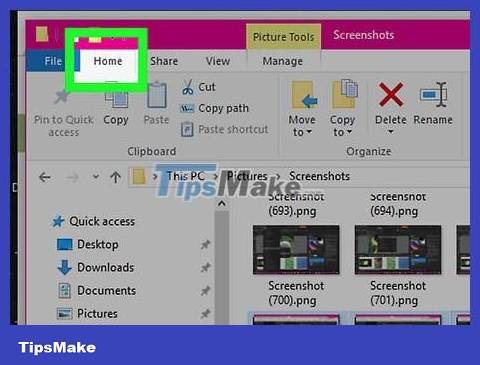
Click the Home tab at the top left of the File Explorer window.
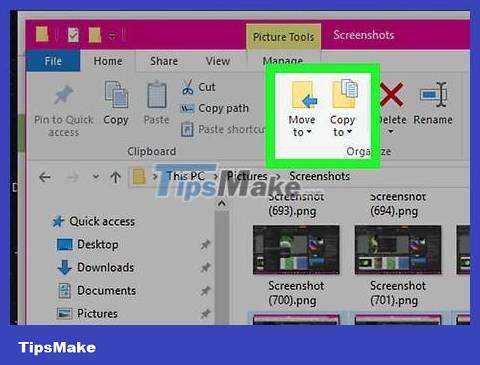
Click Copy to or Move to . Both options are in the "Organize" section of the Home toolbar at the top of the File Explorer window.
Copy to will create copies of files, copying them to the location you choose and keeping the originals at their current location.
Move to will move files from the current location to the location you choose. The data will no longer be in its current location.
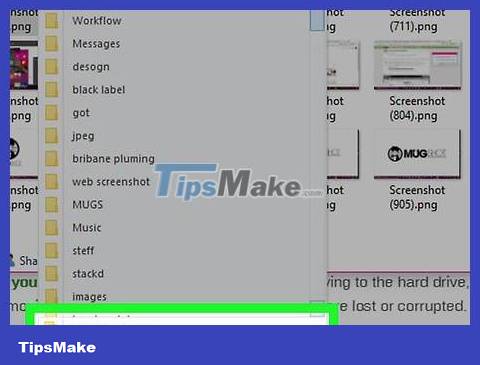
Click Choose location . It's at the bottom of the drop-down menu, below Copy to or Move to .
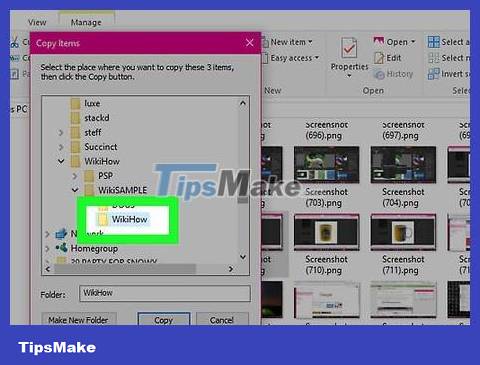
Scroll down and click the external hard drive name. The external hard drive will be under the "My Computer" or "This PC" menu in the pop-up window.
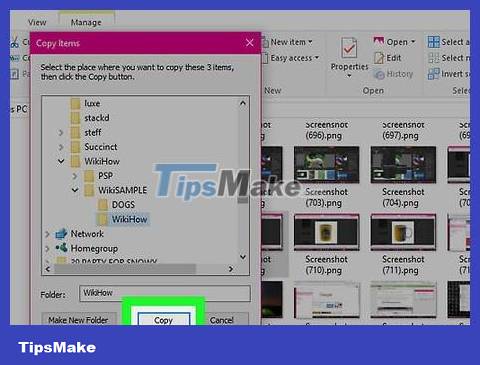
Click Copy or Move . Files will start being copied or moved from the computer to the external hard drive.
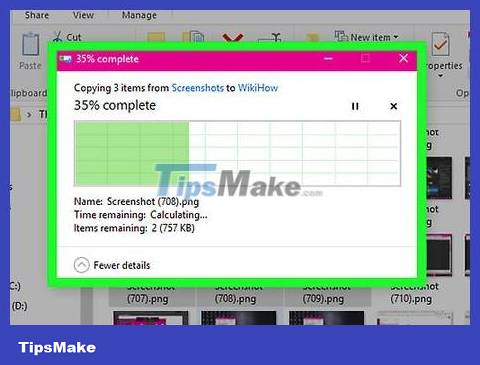
Wait for the process to complete. The process time depends on the size of the files.
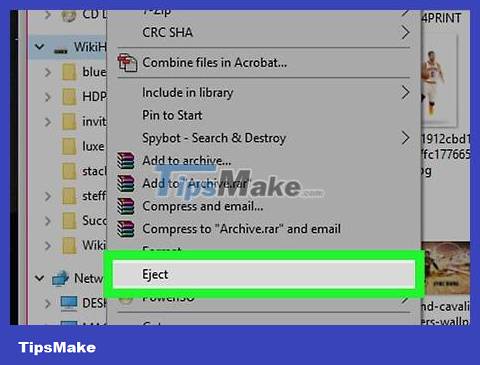
Disconnect the hard drive. After copying files to the hard drive, safely disconnect the hard drive to ensure that data is not lost or damaged.
On Mac
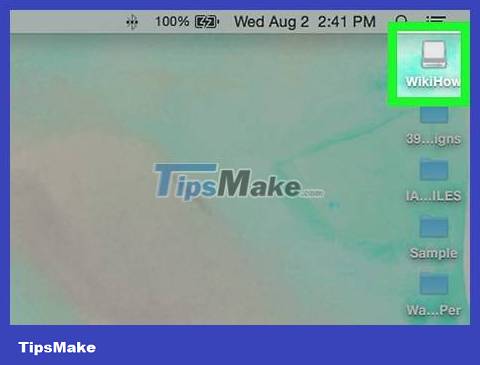
Plug the hard drive into the computer. Plug the hard drive's USB cable end into one of the computer's USB ports.
USB ports are flat rectangular slots located on the computer chassis.
If using a memory card, insert the memory card into your computer's memory card reader. You may need to purchase an SD card to USB converter.
Some Mac computers don't have USB ports, but you can buy an adapter.
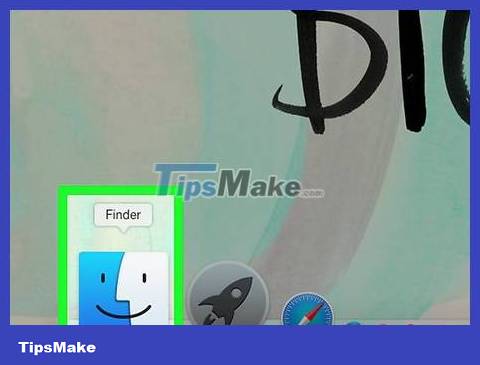
Open Finder. The application has a blue human face, located in the computer dock.
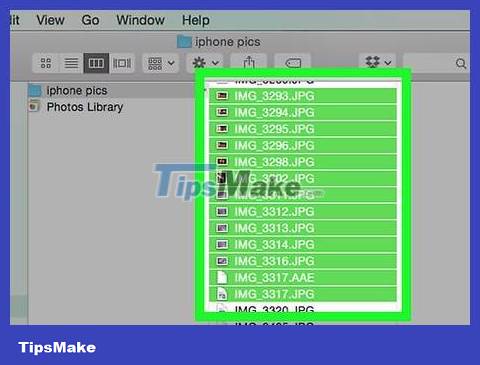
Highlight the files you want to copy. Open the folder containing the files, then click and drag the mouse pointer over the contents of the folder.
You can also hold down the key ⌘ Commandand click each file if you want to select them one by one.
If you can't find your files, click All My Files on the left side of the Finder window to browse all folders on your Mac.
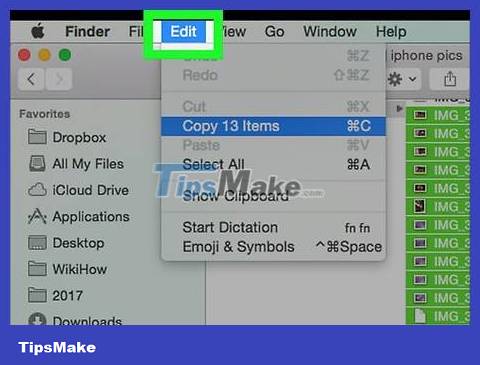
Click Edit . It's in the upper left corner of your computer screen.
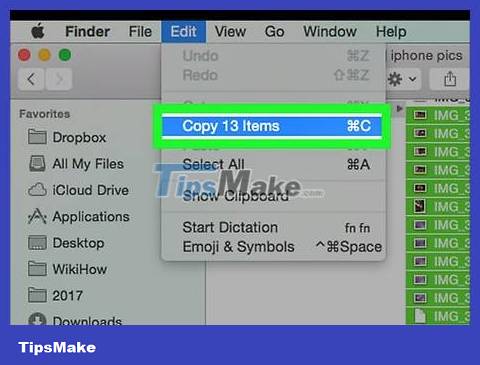
Click the Copy option in the Edit drop-down menu .
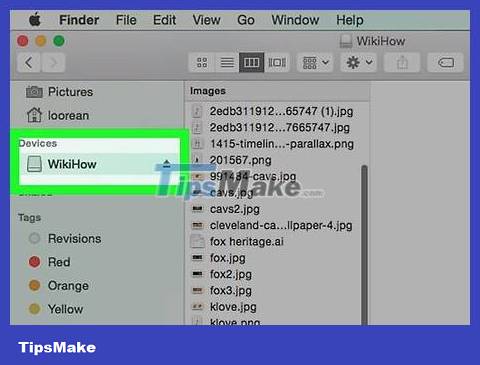
Click the name of your external hard drive, located under the "Devices" heading on the left side of the Finder window. The hard drive's window opens in Finder.
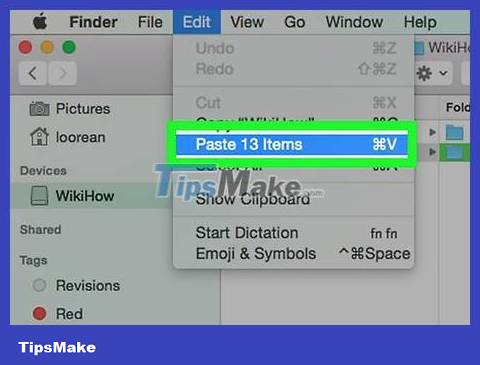
Click Edit again, then select Paste Items . The selected files will be copied to the external hard drive.
If you select just one file, the action will be Paste Item .
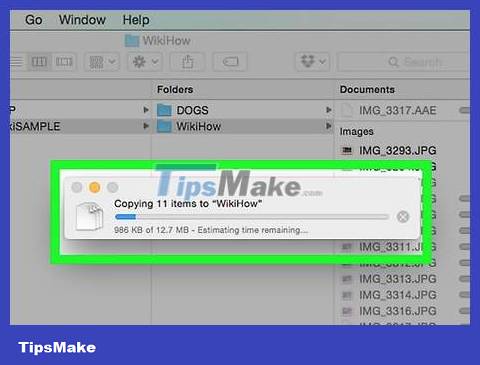
Wait for the copying process to complete. The process time depends on the file size.
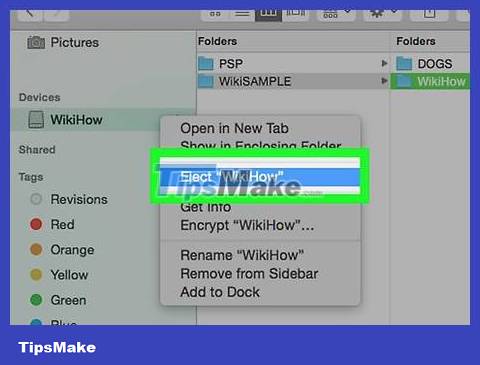
Click the eject button. The option has an upward arrow, located to the right of the hard drive name in Finder. Thus, you can disconnect the hard drive without damaging or losing data.
You should read it
- ★ Pros and cons of using an external hard drive for PS4
- ★ How to use an external hard drive with a Chromebook
- ★ 7 simple ways to increase the life of your external hard drive
- ★ How to fix an external hard drive error is not displayed on the Mac
- ★ Everything you need to know about external hard drives Xbox One